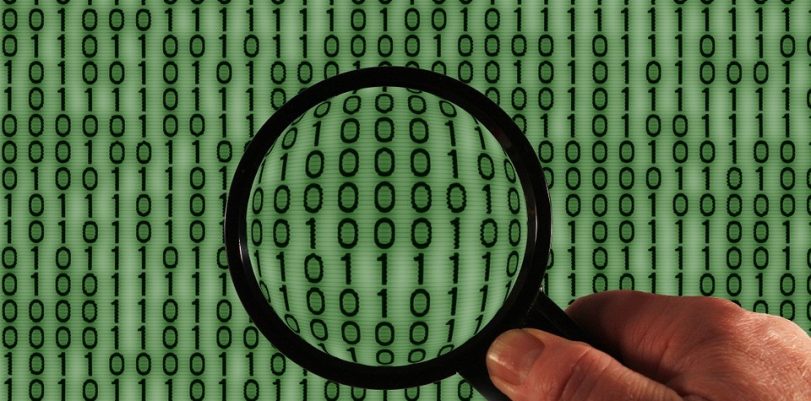The Internet is full of threats and risks that can be a burden to your online experience. One of these hazards is being tracked while browsing the web, which can result in third parties gaining access to valuable material, data and information about you, your family and even your friends.
For this, a Virtual Private Network can be of help, because it tunnels your traffic and prevents strangers to get access to it and harming you in any way. Every interaction you make online will be encrypted and protected with protocols and technologies whose effectiveness may vary from provider to provider.
Now, we have already established that VPNs can help you gain enhanced privacy and online protection from many situations and agents that can inflict damage on your assets. But is this tool mistake-proof like some providers are trying to sell it?
Well, no. A VPN may cause these third agents having a harder time tracking you, but they can still do it. After all, the IP address, which the VPN hides for a more anonymous and secure experience, is not the only way for these unwanted people or software to track your activity.
So, are VPN traceable? Yes, they aren’t 100% bullet-proof. The best way to enjoy a safe online experience is to combine several security methods and measures.
The critical thing to remember here, however, is that offering privacy and anonymity are not the only benefits of VPN, so the fact that it may have some security leaks should not be considered a failure. With a VPN, you can bypass…
Introduction to VPN
Virtual Private Networks, or VPN, are online tools that allow you to connect to remote servers and to borrow a temporary IP address, with the intention of masking your real identity so you can be online without having to worry so much by people tracking you or having a record of your logs and activity.
What VPN does is that it encrypts your data and traffic through virtual tunnels expected to transport this information safely through it. Because the traffic is encrypted, no one will have, in theory, access to it.
There are several reliable VPN options for you to choose, according to what you want to achieve and to your current needs. However, the one that stands out from the pack is TorGuard, with its top-notch customer service, available for users every day at any time. Also, TorGuard allows you to connect up to five different devices at the same time to the virtual private network.
How does it work?
Like we mentioned before, the VPN acts like a tunnel that will deliver your traffic to safe places through the web. To achieve this, they use security technologies that allow the system to function and perform the desired activities.
Some of the most widely known encryption technologies that VPNs use are IP security (IPSec), Layer 2 Tunneling Protocol (L2TP)/IPSec, Secure Sockets Layer (SSL) and Transport Layer Security (TLS), among many others.
What are some of the benefits of VPN?
Using a VPN has some advantages. For example, you can enhance the security of your stuff, device, data, and traffic, because the virtual tunnel in which your information travels is supposed to have no leaks and be off-limits to hackers and online agents lurking around.
Also, you can use a VPN to stream and download content from anywhere in the world. Because your provider will mask your real IP address and lend you a temporary one according to your needs at the time, you will be able to pass through geographical security protocols and therefore gain access to entertainment options from any nation in the globe.
Downsides also exist. Your connection speed will be lower if you use a VPN to browse the web and, mainly if you choose to stream online content with a dynamic IP address. Also, as we are now learning, VPNs do not offer 100% protection and anonymity. But you should know that any method does.
Best VPNs that are Untraceable?
 |
 |
|
|---|---|---|
| Multi-platform Compatible | ||
| 256-AES Encryption | ||
| PRICE | $5 for 1 month with code "best10VPN" | $6.95 a month |
| Website Rating | 9.9 | 8.8 |
| 24/7 Live Chat | ||
| Residential / Dedicated IP for permanent streaming access | ||
| Has Mobile App + PC / Mac Support | ||
| Stealth VPN / Advanced Obfuscation techniques | ||
| Visit VPN Provider | Visit TorGuard | Visit PIA |
Online privacy and anonymity
With as many threats and hazards lurking around the web, you would benefit from more privacy while doing your web browsing, making that critical transaction or entering your social media outlets to share photos, videos, and all kinds of multimedia content.
Online privacy is growing in importance every day, and it has become an issue that many users look to solve because risks of scams, theft, data loss and leaked private information are now hitting users in the face with a healthy dose of reality.
When you engage in critical activities or transaction online, you want to remain anonymous. This is also true when you are streaming content from other countries or accessing your home network from a remote place. Anonymity will protect you from cyber-attacks from hackers, from being tracked by the government or from being harassed by annoying advertising messages.
If you remain anonymous while you browse the web, your Internet Service Provider will have a hard time knowing vital information about your online sessions. Things like duration, location, places you like to visit, the website you browse the most, things you want to buy, and many other tips that the marketing world may use to bomb you with messages will be evident.
So, are VPNs traceable?
Virtual Private Networks may not be easy to trace, and they indeed represent an obstacle for hackers, governmental institutions and Internet giants, such as Google, in their quest of knowing crucial information about you. Your record of pages visited your favorite places, food, spending habits, credit card balances, passwords, and anything they can use to benefit themselves. But reality indicates that these agents can track you even if you are using a VPN.
Some countries’ laws do not allow VPN to keep a “no log policy,” and this is why you need to inform yourself before acquiring a VPN provider. They may be forced to deliver a file with your logs if any legal problems arise, and some options can also leak your IP address at some point, too.
A “no logging policy” is a feature some VPNs offer that consists of dismissing your private data so it can’t be tracked, collected or revealed in any way. Among the information that your VPN provider will not log, there is the duration of an online session, the IP addresses or servers that you used, the websites you visited or the files you downloaded.
This would enhance anonymity and protection because any person, company or entity will be able to track you or your activity for any reason. Or at least this is what the theory says about the subject, or what VPN providers “sell” to their potential customers.
How to gain extra protection on the Internet?
While people can track you online, VPNs make sure that this process is not so simple. The smartest thing to do, if you want to take advantage of the many benefits that online tools continuously offer, is to combine a Virtual Private Network with some other methods.
For example, get a quality VPN and also install an anti-virus, anti-malware, and firewall as extra protection measures. Besides, don’t mess with anyone on the web because you never know who will make tracking you their priority.
In conclusion, VPNs represent helpful tools for a better and smoother online experience. They help you hide your IP address to remain protected online and to gain access to remote sites, but you should know that you are not 100% with them.
No security method is 100% secure, and VPN certainly has its flaws. It only masks the user’s IP address, but there are more ways to track you, and you will be still vulnerable. Of course, people that may want to hurt you would have it more difficult thanks to the VPN.
Besides, Virtual Private Networks bring so much to the table that you can hardly blame and dismiss them for not performing the impossible task of being 100% invisible online.

